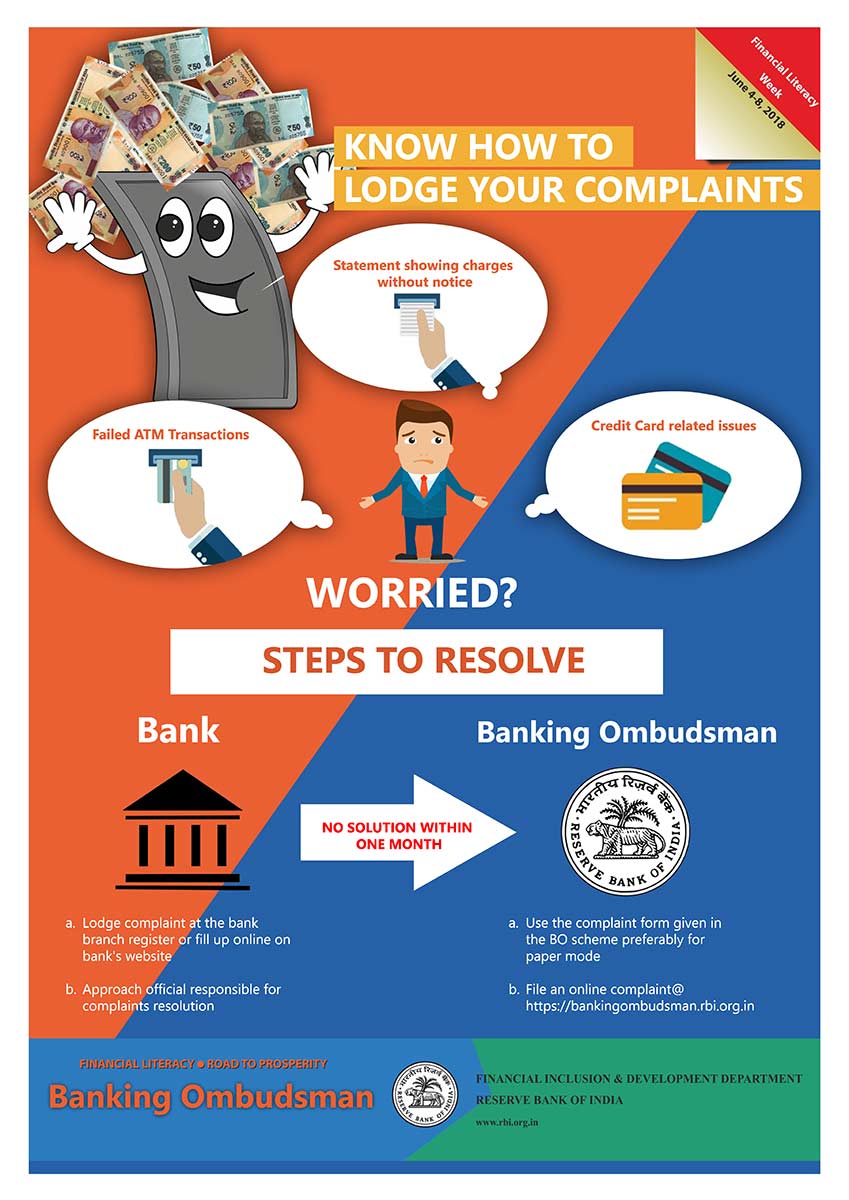The Internal Ombudsman / Deputy Internal Ombudsman cannot be removed before the completion of his / her contracted term without the explicit approval of the Reserve Bank of India

FinTech BizNews Service
Mumbai, December 28, 2023: The Reserve Bank institutionalized the Internal Ombudsman mechanism in various regulated entities. The Internal Ombudsman mechanism has been set up with a view to strengthen the Internal Grievance Redress system of the regulated entities.
A review of Internal Ombudsman schemes has been undertaken by the Reserve Bank in line with the integration of the erstwhile three RBI Ombudsman Schemes as also with the objective to improve the customer service standards in regulated entities. The framework reaffirms that the Internal Ombudsman mechanism should work as envisaged and the Internal Ombudsman shall be positioned as an independent, apex level authority on consumer grievance redress within the regulated entities.
In a communication to Chairman/Managing Director/CEO of All Scheduled Commercial Banks (excluding RRBs) (2) Chairman/Managing Director/CEO of All NBFCs (3) Chairman/Managing Director/CEO of Non-Bank System Participants (4) Chairman/Managing Director/CEO of All Credit Information Companies, the RBI has stated today: “Accordingly, in exercise of the powers conferred by Section 35A of the Banking Regulation Act, 1949, Section 45L read with 45M of the Reserve Bank of India Act, 1934, sub-section (1) of Section 11 of Credit Information Companies (Regulation) Act, 2005 and Section 18 of the Payment and Settlement Systems Act, 2007, the Reserve Bank of India, being satisfied that it is necessary and expedient in public interest to do so, hereby directs that all the regulated entities as indicated in Clause 4 of the Master Direction shall comply with the Direction with immediate effect.”
The regulated entities are further advised as follows: (i) The Internal Ombudsman appointed by the regulated entity, under the erstwhile Internal Ombudsman Schemes / Direction shall continue to hold office till the expiry of their tenure. (ii) The regulated entities not currently falling under the Internal Ombudsman Schemes / Direction may closely monitor their eligibility as per the prescribed provisions for timely appointment of Internal Ombudsman in their entity, as required.
The Internal Ombudsman shall either be a retired or serving officer, in the rank equivalent to a General Manager of another bank / Financial Sector Regulatory Body / NBSP / NBFC / CIC, having necessary skills and experience of minimum seven years of working in areas such as banking, non-banking finance, regulation, supervision, payment and settlement systems, credit information or consumer protection. Regulated entity may appoint more than one Internal Ombudsman depending on the volume of complaints received by them to ensure continuity of operations during the absence of the Internal Ombudsman.
The Internal Ombudsman / Deputy Internal Ombudsman cannot be removed before the completion of his / her contracted term without the explicit approval of the Reserve Bank of India. In case the vacancy arises on account of reasons beyond the control of the regulated entity (such as death, resignation, incapacitation, terminal illness, etc.), the regulated entity shall inform Reserve Bank of India within 10 working days from the date of such vacancy.
Internal Audit
The regulated entity shall conduct an internal audit of the implementation of these Directions on a yearly basis. The internal audit of the regulated entity shall cover the implementation and compliance with these Directions inter-alia, including: (a) The adequacy of the infrastructure (space, IT infrastructure, human resources, etc.) provided to the office of Internal Ombudsman and whether it is in line with the volume of complaints and the stated position of the Internal Ombudsman at the apex of the grievance redress mechanism; (b) Implementation of auto-escalation of the partly or wholly rejected complaints to the Internal Ombudsman within 20 days and adherence with various timelines indicated in these Directions; (c) Actions by the Internal Ombudsman with regard to analysis of complaints, reports submitted to RBI and the regulated entity, efforts made by Internal Ombudsman for review and quality disposal of the rejected complaints, support provided by the regulated entity towards raising awareness about types of grievances, and developing uniformity of approach in handling of complaints across the regulated entity as also the support provided to the Internal Ombudsman for redress of the complaints; (d) Adherence with various timelines indicated in these Directions.
For further details: https://www.rbi.org.in/Scripts/BS_PressReleaseDisplay.aspx?prid=57038